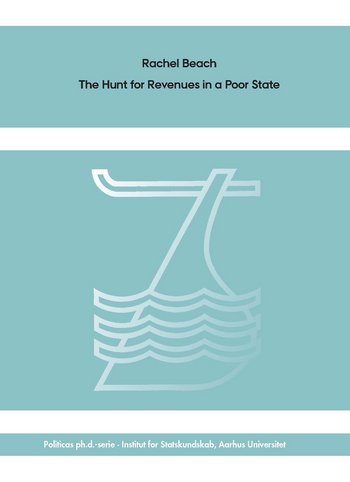Rachel Beach
The Hunt for Revenues in a Poor State

Using the lens of scarcity, this thesis argues that the poorest states in our modern world are often driven to make choices that otherwise appear irrational and inefficient. This research investigates the following question: what shapes the strategies of revenue mobilization in poor states? In an environment characterized by scarcity of public resources, the full and proper implementation of the tax code cannot be taken for granted. Instead, bureaucrats must navigate around or develop (sometimes illegal) pragmatic strategies to overcome an extensive set of administrative and political constraints. As a consequence, revenue systems are often characterized by weak enforcement and labyrinthine bureaucratic procedures, stunted reforms and patterns of isomorphic mimicry as well by behaviors often attributed to endemic corruption and neo-patrimonial politics. This thesis argues that the prevalence of these features can be explained, in part, by bureaucrats’ motivations of rational resource-maximization in a context of scarcity.
![]() Ophavsretten tilhører Politica. Materialet må ikke bruges eller distribueres i kommercielt øjemed.
Ophavsretten tilhører Politica. Materialet må ikke bruges eller distribueres i kommercielt øjemed.